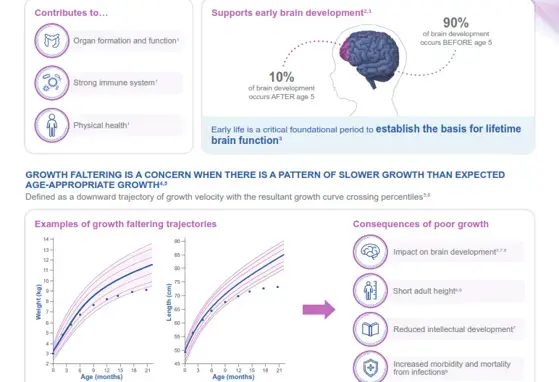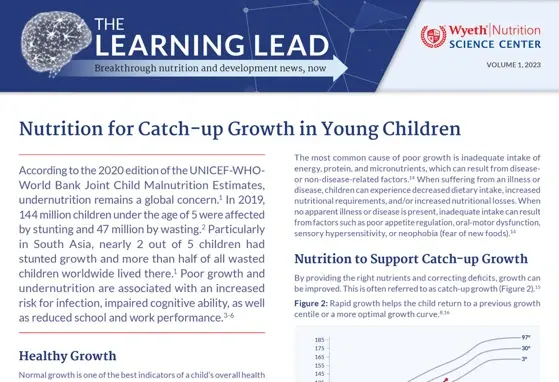[Science Update] Early-life gut ecology and reduced risk for reported LRTI

By using results from a clinical intervention trial with 2-human milk oligosaccharide (HMO) and control formula-fed infants, the current study sought to discover early-life infant parameters and microbiome characteristics linked to subsequently reported lower respiratory tract illnesses (LRTI) including bronchitis.
Subjects
- Healthy term infants from birth to 14 days old at enrollment (n = 175)
Intervention
- Test formula: An intact protein cow’s milk protein-based infant formula supplemented with 2 HMOs (2’-FL & LNnT) at 1.5 g/L and a ratio of 2:1 between the 2 HMOs
- Control formula: The same infant formula without 2-HMO supplementation
Methods
- Machine-learning-based classification: To look at how cases and controls may be classified based on 3-months-of-age stool microbiota composition, metabolites and gut health markers, delivery mode and formula type (with or without HMOs)
Results
- 2-HMO formula-fed infants’ microbiota was shifted closer to that of breastfed infants, and it was linked to a lower risk of using antibiotics later in life
- Infants fed on 2-HMO formula had a considerably decreased risk of reporting bronchitis and LRTI
- Main features that distinguish infants without experiencing any reported bronchitis (n = 80/106) or LRTI (n = 70/103):
- Formula supplemented with 2 HMOs (2’-FL & LNnT)
- Higher acetate, fucosylated glycans and Bifidobacterium
- Lower succinate, butyrate, propionate and 5-aminovalerate
- Lower carnobacteriaceae members and Escherichia
Conclusion
- The observed clinical effects of decreased risk for bronchitis and LRTI in infants given a formula containing HMOs are partially explained by an early-life gut ecology defined by Bifidobacterium species-driven metabolic alterations
Abbreviations:
2’-FL = 2’-Fucosyllactose; LNnT = Lacto-N-Neotetraose
Link to the full article:
https://www.ncbi.nlm.nih.gov/pmc/articles/PMC8465161/pdf/microorganisms-09-01939.pdf
Reference:
Dogra SK et al. Human milk oligosaccharide-stimulated bifidobacterium species contribute to prevent later respiratory tract infections. Microorganisms. 2021;9(9):1939.
Other articles that you might be interested in:
[Literature library] The influence of FUT-2 and FUT-3 polymorphisms on acute respiratory infections
WYE-EM-107-AUG-22
If you liked this post you may also like



[Science Update] Relationship between metabolites modulated by HMOs and reduced risk of LRTIs

[Literature library] Effects of a specific blend of 5 HMOs on gut microbiota development and maturation